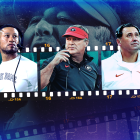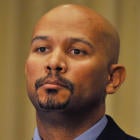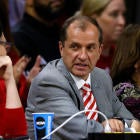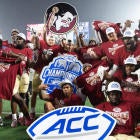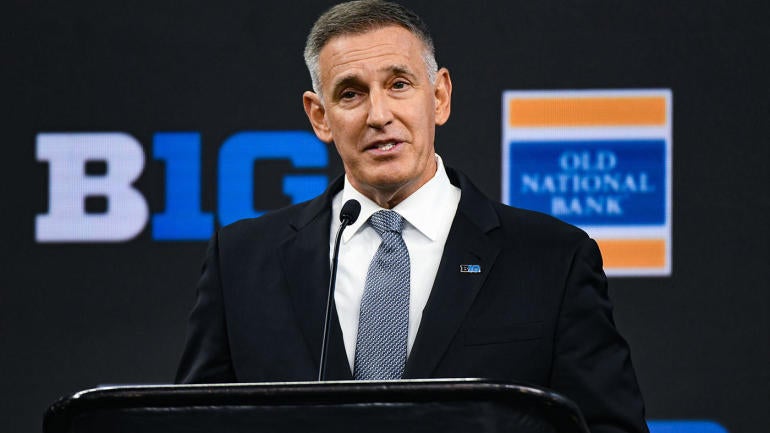
Amid changing headwinds in college athletics, first-year Big Ten commissioner Tony Petitti struck an optimistic tone for the conference during his opening remarks at Big Ten Media Days on Wednesday. Just three months into the job, Petitti said he has "just enough dirt in my spikes to make some observations" as he addressed reporters at Lucas Oil Stadium in Indianapolis, Indiana.
"I'm excited about our future," he said. "With committed leadership from our COPC (council of presidents and chancellors) and ADs, an energized conference staff, the addition of USC and UCLA, new and exciting media partners and expanded platforms, support from our coaches with the goal of winning national championships in all sports and a strong belief in the academic-athletic model, I believe that we are really just getting started."
Petitti, the former Major League Baseball chief operating officer and a longtime sports television executive, started the job on April 15 after Kevin Warren left to become CEO of the Chicago Bears. He is not the only fresh face in a Power Five commissioner seat; cohorts Jim Phillips (ACC), Brett Yormark (Big 12) and George Kliavkoff (Pac-12) are each relatively early in their tenures as well. However, of the newcomers to the Power Five commissioner ranks, he's the one with the most stable situation.
While uncertainty over the future of student-athlete compensation looms as a cloud over all of college athletics, the Big Ten is in excellent shape with a new seven-year media rights deal beginning this season with Fox, CBS and NBC that is worth approximately $1.2 billion annually.
"When the new deal is fully implemented in 2024, we are projecting 45 broadcast TV games each season," Petitti said, also noting that 27 of the 30 most-viewed college football games last season were on broadcast networks. "Big Ten fans will move seamlessly from Fox to CBS to NBC."
The league's national profile is also slated for a jolt starting next season as UCLA and USC join the conference on Jul 1, 2024, bringing it to 16 teams and on par with an expanding SEC, the conference's chief rival in the race for conference superiority. While Petitti praised the league for settling on a future football scheduling model for a 16-team format, he acknowledged difficulties remain from a scheduling perspective with integrating the Bruins and Trojans into a conference that otherwise exists in the Central and Eastern time zones.
"All the direction I'm getting from leadership — our presidents and chancellors and our athletic directors — is to focus on USC and UCLA," he said when asked about the potential for additional expansion. "We have a lot of work to do there. I'm proud of the scheduling format we created in football. I think it touches on all the right things. But we have significant work to do in scheduling for our other sports, especially our olympic sports, to come up with the best solutions. We have a good plan in motion. I think we'll learn from it. Like anything, there'll be tweaks and changes. But overall, that's really where we are. I'm not getting direction to do anything else other than that in terms of what the conference looks like right now."













